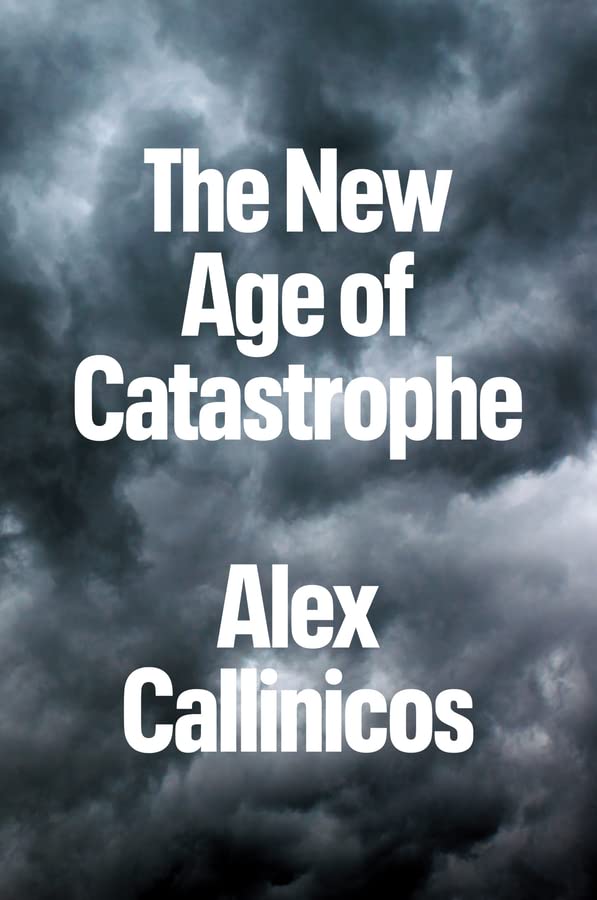(THIS ARTICLE IS MACHINE TRANSLATED by Google from Norwegian)
The world is on a course for disaster. But to understand the current crisis, one must look back at the last time we found ourselves in a situation of similar destructive format. It is the time that you could call the Thirty Years' War in the 20th century, namely the time of the two world wars: the Great Depression, the terror of Stalinism, the Nazi monster and the Holocaust.
Economic and geopolitical interests collided, and thus we got an unprecedented industrialization of the war.
Here the British political theorist Alex Gallinicos takes his point of departure in his latest book, and the short version of his explanation is that at the end of the 19th century, capitalist imperialism reached a level where economic and geopolitical interests collided, and thus we got a industrialization of war on an unprecedented scale. We know the rest of the story. It led to economic crisis and totalitarian ideologies until in 1945 the world thought it was all over.
Fossil capitalism
Gallinicos points out that 73 percent of the estimated 150 million war-related deaths since 3000 BCE occurred in the 20th century—so with the unfathomable destructive energy humans possess today, it's no wonder it's gone mad again. Albeit in a new and cunning way.
His mission with this book is to explain how, at the beginning of the 21st century, we are living in a crisis that can be at least as devastating to our survival on the planet. He points to the widespread destruction of nature, economic stagnation and geopolitical contradictions, which is nothing new. We all know that, but his explanatory model is interesting – and disturbing.
In the years 1948–73 we experienced one of the greatest and most sustained upswings in the history of capitalism, and this he explains as the result of the victory of liberal imperialism over its fascist rivals. The era is called 'the great acceleration', and it was absolutely central to get access to cheap oil. With the Marxist point of departure that Gallinicos uses, this means that in the pursuit of profit the earth and its resources are turned into a commodity. Nature was industrialized, just as war was, and it has become the most important factor behind the dramatic climate changes we are experiencing now.
The growing awareness of the problem has put enormous pressure on, for example, the automobile industry, which is one of the biggest CO2 culprits. However, this is not the big bright spot, because as work is being done to develop electric cars, it only concentrates power on even fewer multinational companies like Tesla, while the hunt for new raw materials only brings the geopolitical situation even more out of balance. Here we can point to China, which is a new major player in this field, and it creates what is known in Marxist thought as competing capitals.
It just concentrates power on even fewer multinational companies like Tesla.
As a result of this, there is further pressure on the falling profit rates, which already began to show in the post-war period of great growth. Growth was driven by cheaper products for consumers, triggered by greater competition, and this development has also reached a critical point in these years. And a pressured capitalist economy is even more cynical in relation to the exploitation of natural resources, just as a harsher exploitation of the working class goes hand in hand with the already strongly increasing geopolitical conflicts.
Revolt and right-wing populism
It is frightening reading that Professor Gallinicos presents us with in this extremely well-documented presentation. And as he puts things in order, it is obvious that the danger signals have already been present for a number of years.
He points to three waves of revolt, which, starting in the 1990s, have all sprung from the left wing. Just at that time anti-neoliberals got protestmovements such as the Zapatistas in Mexico, with an important offshoot in Colombia and not least the opposition to the war in Iraq (1994–2005). The second wave came as the so-called Arab Spring, which also gave rise to movements such as Occupy Wall Street, and finally, as the third wave, we got a series of significant revolts from Hong Kong and Kazakhstan, across France to Iran, Lebanon and Haiti. This third wave, which spread from 2019, also manifested itself in Black Lives Matter.
Nature was industrialized, just as war was.
The counter to all this came in the form of a right wave, which little by little took the form of a harsh populism, as seen in political leaders such as Donald Trump and Marine Le Pen. Combined down the extensive breakdown in the neo-liberal flow, Gallinico identifies the reason why the crisis of the time cannot be compared at all to the situation in the interwar period. Back then you saw revoltare and counter-revolts, where there was always a party that represented the interests of the working class – but this last element is completely absent today. Because even if a man like Trump attacks the elite, there is no reason whatsoever to believe that he will in any way really benefit the working class. What we see is a kind of intensified state control of virtually all socio-economic aspects of life together with a radical undermining of democratic institutions.
In this game, the environment invariably becomes one of the big losers, because no one really takes responsibility, and meanwhile the capitalist machine runs on in perpetual pursuit of profit. This is a future we have all come to fear. Alex Callinicos's analysis is not easy reading and at times becomes very theoretical, but the message is quite clear that this future is already here. We live in the middle of it, and it is something of a horror.


